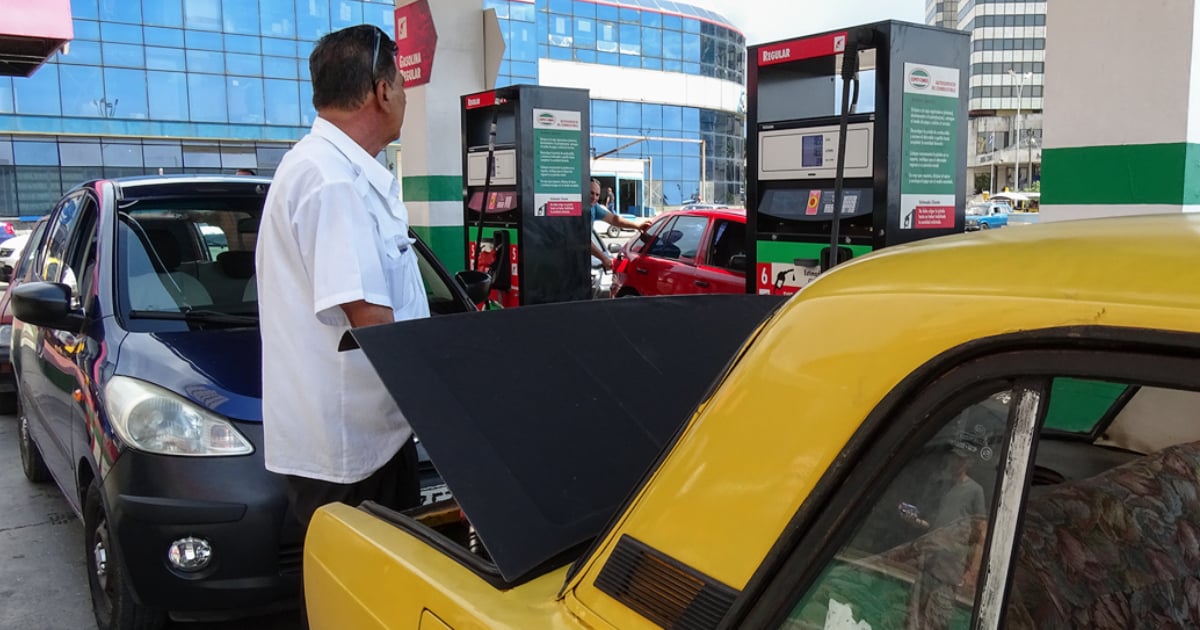The Cuba-Petroleum Union (CUPET) provided further insights on Wednesday regarding new regulations for fuel sales at service stations across the island, prompted by a shortage of premium gasoline. In a post on their Facebook page, the organization outlined key measures, including assurances that private sector fuel cardholders can still access all available types of gasoline.
Key Measures Implemented by CUPET
- A new method of gasoline sales is being introduced at all service stations nationwide due to the scarcity of premium gasoline.
- Based on domestic production, efforts are being made to ensure service stations operating in USD are adequately supplied.
- CUPET is tasked with the production of these types of gasoline.
- Regular gasoline will be utilized. The daily distribution plan includes 900 tons of both regular gasoline and motor fuel.
- Tonight at midnight, Corporación Cimex.SA, responsible for selling premium gasoline, will implement actions allowing state sector fuel cards to purchase regular fuel.
- The private sector remains unaffected by these changes, as their cards provide access to all fuel types.
The authorities claim these measures aim to optimize fuel distribution amidst current supply constraints, further deepening the dollarization of the energy sector.
Fuel Dollarization in Cuba
This restriction is part of the Cuban regime's ongoing trend of tying access to essential goods to foreign currency payments. In recent months, the number of gas stations operating exclusively in dollars has increased.
By January 2024, nearly 30 service stations began selling fuel solely in USD, with an additional 17 stations adopting this model by May 2024. The regime argued that selling in dollars would ensure fuel availability and decrease the long lines at stations accepting Cuban pesos.
However, the policy has faced significant criticism for excluding the majority of the population, whose earnings are in the national currency and who lack direct access to foreign currency.
Fuel Crisis and Economic Challenges
The fuel crisis has escalated in recent months, with frequent reports of shortages, long lines at gas stations, and sales restrictions. The limitation on premium gasoline sales reinforces the perception that the State prioritizes foreign currency collection over equitable resource access.
The increased use of the dollar in official transactions fits into a broader economic policy of partial dollarization, extending to sectors like food, appliance sales, and now, fuel.
In December 2024, the Cuban regime approved a document officially regulating the circulation of the dollar in the country, consolidating its role as a reference currency for many economic activities, while the Cuban peso continues to lose value.
CUPET's policy does not have an expiration date, and the government has not announced alternatives for those without foreign currency, leaving a significant portion of the population without access to premium gasoline.
Understanding Cuba's Fuel Sales Adjustments
Why is there a shortage of premium gasoline in Cuba?
The shortage of premium gasoline in Cuba is attributed to production constraints and the prioritization of USD-operating service stations to ensure continuous supply amidst limited resources.
How are private sector fuel cardholders affected by the new measures?
Private sector fuel cardholders are not affected by the new measures as their cards still provide access to all types of gasoline available.
What is the impact of fuel dollarization on the Cuban population?
Fuel dollarization has excluded many Cubans who earn in the national currency and do not have access to foreign currency, limiting their ability to purchase fuel at stations operating in USD.
